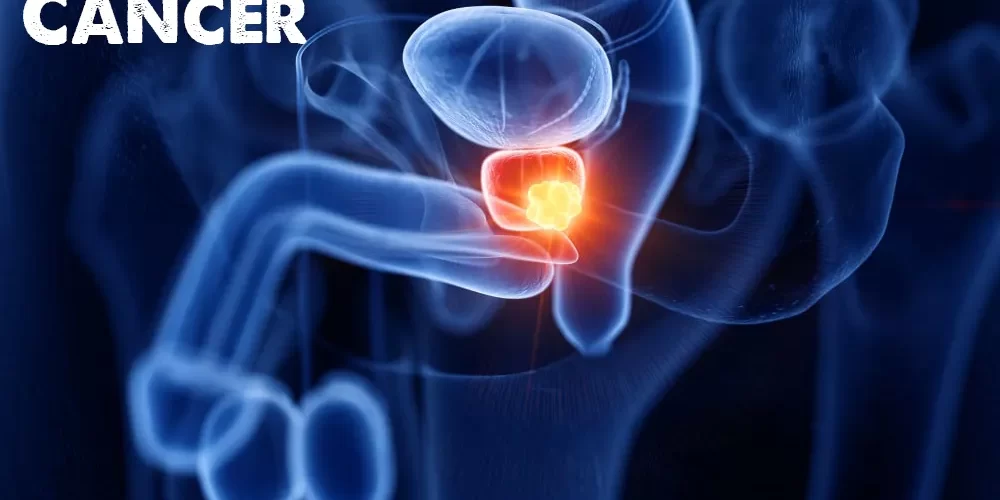The prostate is a gland in the male reproductive system. It’s found below the urinary bladder and in front of the rectum in the lower part of the abdomen. The prostate produces some of the fluid that makes up semen when a man ejaculates. Prostate cancer is one of the common cancers and it usually can be detected before there are symptoms. In this article, we’ll tell you what you need to know about prostate cancer so that you can take steps to protect your health!
How to lower your risk for prostate cancer
“Every man needs to know about prostate cancer because it is one of the most common cancer among men.” Prostate cancer can be prevented in many cases, but unfortunately gets overlooked by many. It’s important to understand the warning signs so you can avoid living in ignorance. Symptoms include difficulty peeing, trouble starting to pee, leaking when you pee, pain during peeing, and blood in your urine. The American Cancer Society estimates that 1 guy out of 7 will be diagnosed with prostate cancer at some point during their lifetime. That means you are statistically 3x more likely to get prostate cancer than any other type of cancer. This is due in part to the correlation between high-fat diets and prostate cancer risk, so healthy dietary habits can go a long way in lowering your chances.
Early warning signs of prostate cancer
Prostate cancer is the second most common form of cancer in men. It has three stages: localized, regional, and metastatic. The localized stage only occurs when the cancer is limited to the prostate gland. The regional stage occurs when metastasis have occurred to lymph nodes nearby the prostate. The metastatic stage is when the cancer cells have spread to distant organs.
The best way to detect prostate cancer is by doing regular test for PSA. Prostate specific antigen (PSA) is a blood test to detect it at early stages.
Prostate cancer can be managed by surgical removal, radiation therapy, hormone therapy, chemotherapy, photodynamic therapy or robotic surgery. These are done to remove or destroy prostate cancer cells that have spread beyond the prostate gland to other parts of the body. However, curative treatment for prostate cancer is radical surgery or radiotherapy.
How men can prevent or treat prostate cancer
Prostate cancer prevention may be of interest to you if you’re concerned about your risk of prostate cancer.
Prostate cancer can’t be completely avoided. The results of studies frequently contradict each other, and most aren’t meant to establish definitively whether something protects prostate cancer. As a result, there are no clear ways to avoid prostate cancer.
Dr. Sandeep Nayak is one of the leading oncologist in Bangalore. With years of expertise in oncology he is coined as one of the renowned cancer specialists in Bangalore. You can consult a well known oncologist in Bangalore, Dr. Sandeep Nayak if you are planning to have a check up regarding prostate cancer. He can guide you to prevent or treat prostate cancer at very early stage.
Although research results are inconsistent and this hasn’t been proven concretely, there is some indication that eating a balanced diet low in fat and high in fruits and vegetables will help reduce the incidence of prostate cancer.
If you want to lower your prostate cancer risk, do these things:
- Fats can be found in meats, nuts, oils, and dairy products like milk and cheese.
According to certain research, males who consumed the most fat per day had a higher risk of prostate cancer. This does not imply that being overweight promotes prostate cancer. This link hasn’t been discovered in other investigations. However, limiting the quantity of fat you eat on a daily basis has other known benefits, such as weight control and heart health.
Limit fatty foods or choose low-fat varieties to lower the amount of fat you consume each day. Reduce the amount of fat added to dishes when cooking, use thinner cuts of meat, and select low-fat or reduced-fat dairy products, for example.
- Vitamins and nutrients found in fruits and vegetables are expected to lower the chance of prostate cancer, yet research hasn’t proven that any one component is certain to do so.
When you eat more fruits and vegetables, you have less room for other meals, such high-fat foods.
Consider adding an extra serving of fruit or vegetable to each meal to increase the quantity of fruits and vegetables you consume each day. Consider snacking on fruits and veggies.
Lifelong effect of prostate cancer
Prostate cancer is the most common cancer among men, but it doesn’t always mean death. The U.S. Centers for Disease Control and Prevention reports that 1 in 6 men will get prostate cancer during his lifetime, but only 1 in 36 die from it. The good news is that prostate cancer survival rates are high, with 90% of all men still alive five years after diagnosis. The most common symptoms of prostate cancer are:
- Difficulty urinating, especially at night;
- Weak or interrupted flow of urine

